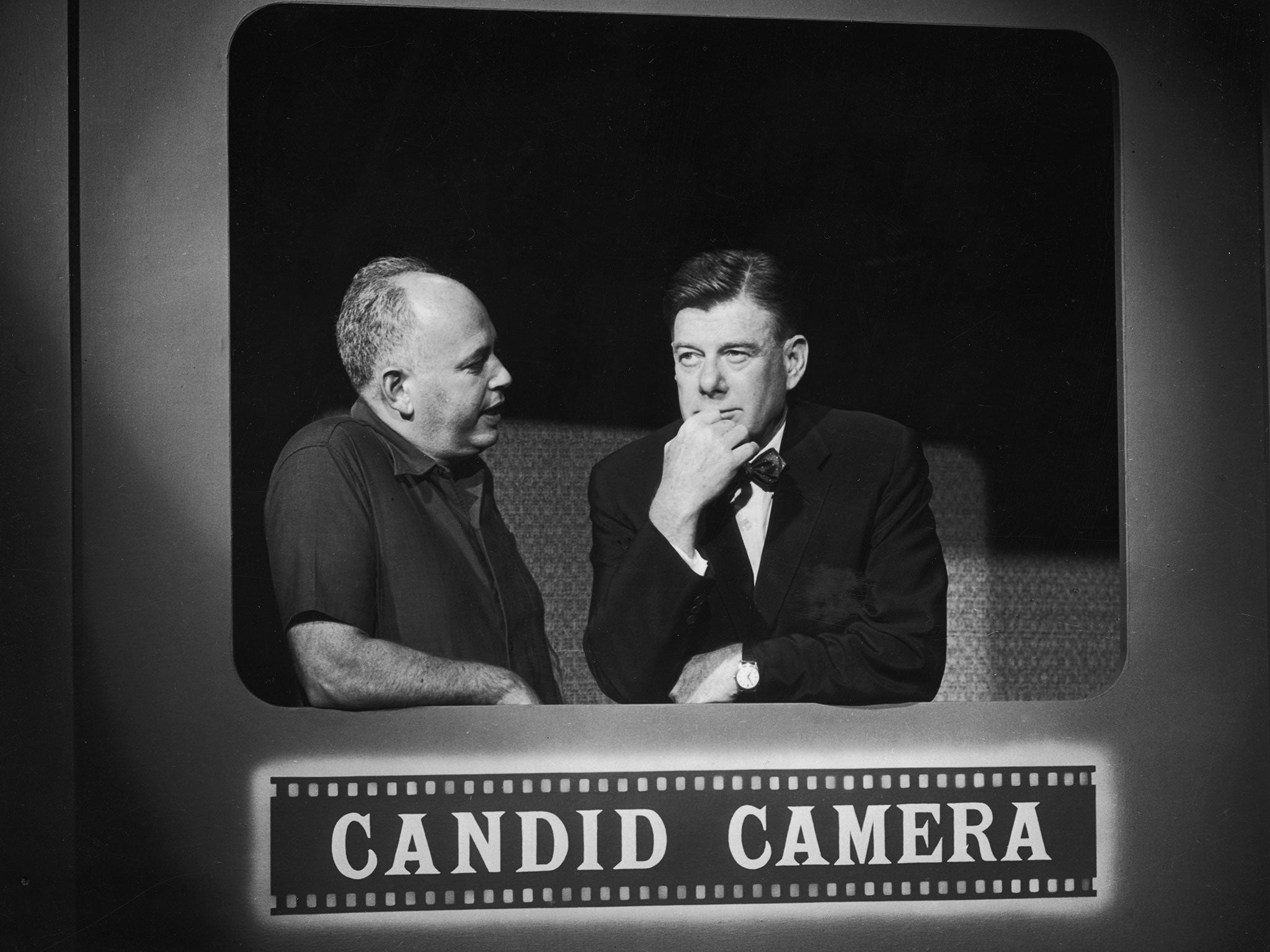Radiolab, review: How a peep show from the Forties led to The Apprentice
Allen Funt invented the television show Candid Camera in the late Forties, but before that he recorded conversations with irritable soldiers in a series called The Gripe Booth

Your support helps us to tell the story
From reproductive rights to climate change to Big Tech, The Independent is on the ground when the story is developing. Whether it's investigating the financials of Elon Musk's pro-Trump PAC or producing our latest documentary, 'The A Word', which shines a light on the American women fighting for reproductive rights, we know how important it is to parse out the facts from the messaging.
At such a critical moment in US history, we need reporters on the ground. Your donation allows us to keep sending journalists to speak to both sides of the story.
The Independent is trusted by Americans across the entire political spectrum. And unlike many other quality news outlets, we choose not to lock Americans out of our reporting and analysis with paywalls. We believe quality journalism should be available to everyone, paid for by those who can afford it.
Your support makes all the difference.There was a time, said Radiolab, when the line between real life and what happens on TV was clear. But then along came Allen Funt, who made radio shows for the US Armed Forces during the Second World War, and changed everything.
Funt would invent the television show Candid Camera in the late Forties, but before that he recorded conversations with irritable soldiers in a series called The Gripe Booth. He began recording with their consent but found he achieved a far more naturalistic discussion when he recorded them without their knowledge.
It was this idea, of catching subjects in “the art of being themselves”, and which later morphed into televised pranks, that led to a new strand of entertainment that has reached its apogee today.
In ordinary circumstances, I probably wouldn't listen to a show about reality TV, since it's a form to which I have developed a catastrophic allergy. But this was the US podcast Radiolab, and in my years of listening, I've yet to hear a bad episode.
Radiolab's aim is to reflect on matters scientific and philosophical, and it's done with a curiosity and accessibility that is often missing from programmes here at home. Drawing on the charisma of its presenters and contributors, as well as the show's uniquely clever sound design, it does this brilliantly.
And so I found myself enveloped in the history of a form of entertainment that is built on discomfort but also about the human desire to be seen and heard. This tension was encapsulated in the audio of a woman complaining about the intrusive nature of Funt's radio programmes. When asked by Funt if she would mind him broadcasting her opinions “from coast to coast”, there was a pause and then a notable change in her voice. “Yes,” she said, “I want the whole world to know my opinion.”
And that, people, is why we have The Apprentice.
The nearest thing we have to Radiolab at home is Short Cuts, a programme of micro-documentaries presented by Josie Long that is now on its eighth series. It is, in many ways, the least Radio 4-sounding show to be found on Radio 4, thanks in part to the production which is smart and stylised (credit to the production company Falling Tree that specialises in beautifully made and unusual docs) and because the slivers of human experience it contains are decidedly oddball and pay no attention to the news cycle.
Lately there have been pieces on the curse of having the same name as a celebrity and the detective who interviewed the Norwegian gunman Anders Breivik more than nine months after the Utoya massacre. “I've never met a human being who doesn't appreciate being listened to,” he said.
The latest episode, Copycats, looked at imitation and began with the musician and presenter Tom Robinson recalling, with a heroic lack of bitterness, how Pink Floyd nabbed the outro to one of his songs for “Another Brick in the Wall”.

Watch Apple TV+ free for 7 days
New subscribers only. £8.99/mo. after free trial. Plan auto-renews until cancelled

Watch Apple TV+ free for 7 days
New subscribers only. £8.99/mo. after free trial. Plan auto-renews until cancelled
There was also a man who cobbled poetry out of the Today programme, and a wildlife cameraman who was driven to distraction when, having been dispatched to British Columbia to film wolves, he didn't see one for three weeks. The latter talked of the desperation and the depression of being sat alone in the woods, his eyes trained on nothing. But eventually he learned to mimic the wolf's call and got his shot, and I shed a small tear of relief.
Join our commenting forum
Join thought-provoking conversations, follow other Independent readers and see their replies
Comments